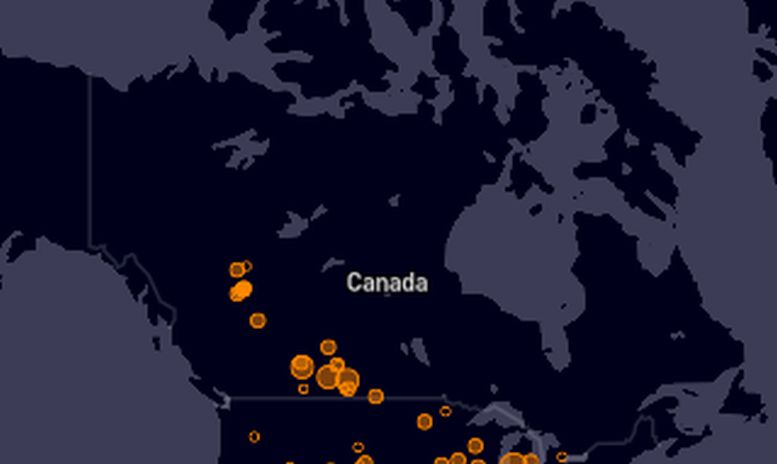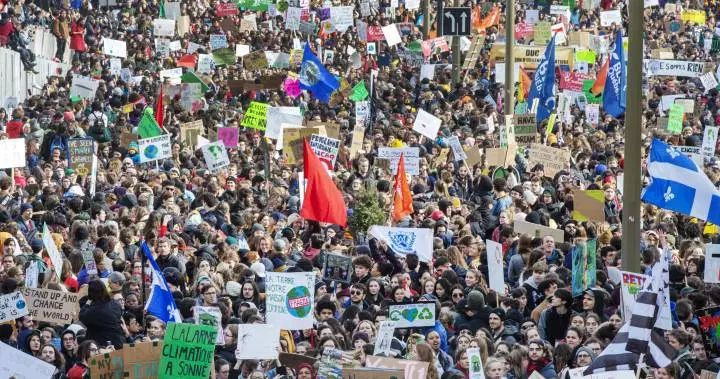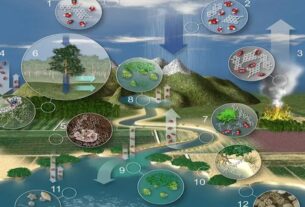“The list of failures grows longer yet again.” Plain speaking from Canada’s Commissioner of the Environment.
Jerry DeMarco outlined some of the government’s failings in reporting on April 26. The government is not measuring if its policies to reduce greenhouse gas emissions are working. It is not on track to meet its goal to plant two billion trees by 2031. It is failing to protect species at risk of extinction.
This is not the first time the Canadian government has talked fine words but not delivered. DeMarco stated, “Our past audits show that Canada has failed to meet many of its climate and biodiversity targets, and … without a significant shift in approach, this trend will continue.”
The government announced plans to reduce emissions to 40 to 45 percent below 2005 levels by 2030, a target to release around 443 megatonnes of carbon dioxide equivalent (MT), still a lot of pollution. This is down from the 2005 level of 747 MT, but almost all the reduction is by electricity generation, as coal has been phased out. This is a one-off cut. Over the same time, the oil and gas sector has increased its pollution.
At COP26 in 2021, Trudeau made a big deal about reducing the release of methane gas, a powerful cause of climate change. He pledged to reduce methane emissions from oil and gas to 75 percent below 2012 levels by 2030. But the recent report from the Commissioner of the Environment found it troubling that the government doesn’t know how much efforts to reduce methane emissions are contributing to emissions reductions. “We found large sources of methane emissions were unaccounted for in inventories and not covered by any existing regulations.”
Failing on Tree Planting and Protecting Species
The government set a goal to plant two billion trees by 2030. It met its first-year target in 2021, but now is 45 million trees behind schedule. There are many good reasons to plant trees, such as urban air quality, cooling and relaxation. Trees on non-urban land decrease erosion, improve the soil’s moisture absorption and retention. In some cases, they can absorb carbon dioxide in the long run, but only if they do not rot or are burned. However, many claims of trees contributing to net zero are grossly exaggerated.
The report found that of 520 species labelled at risk since 1982, 80 percent had either no change in status or had entered a higher risk category. The major danger to species is destruction of their habitat from logging, mining and expansion of urban construction into greenbelts. The threat to life is a failure of both the federal and provincial governments.
Worse than the Report
The report does not consider governments’ future plans. These pave the way to an even worse future. Canadian governments, both Conservative and Liberal, have acted to increase the production of fossil fuels.
The Liberals bought the Trans Mountain pipeline, which is set to cost at least $31 billion, and likely to increase further from the initial estimate of $6.8 billion. $31 billion would have provided a lot of good union jobs in the transition to clean energy instead of 90 long-term jobs the project has promised will be provided. There will be far more jobs cleaning up after the disasters of climate change. The Liberals agreed to the new Bay du Nord oilfield off the coast of Newfoundland.
The companies in the Alberta tar sands plan to increase production while cutting jobs. The gas export terminal at Kitimat will boost gas exports. Based on current policies, Canada’s gas production will increase by nearly 40 percent in the next 20 years.
The government claims that the production of these fossil fuels will be carbon neutral by 2050. This is magical thinking. Even worse, this goal is only for the process of producing fossil fuels in Canada. It does not account for the burning of oil, gas and coal elsewhere, which still contributes to climate change just as much as if they were burned in Canada. The goal of net-zero relies on large scale carbon capture, a technology that does not work and is very expensive. The oil and gas sector are looking for megabucks of public subsidy to pay for this fiasco.
Climate Change Already a Disaster
Canada, like the rest of the world, is being hammered by the changes to the earth’s climate. The Arctic is melting at record speed, as are the glaciers in the Rockies that feed all the major rivers of western Canada. Floods, storms, hurricanes and heat waves are getting worse.
Yet Canadian governments — whether Liberal, NDP or conservative — want to increase the production of fossil fuels. Across the country — from BC gas fields, extracted by dangerous fracking, BC and Alberta’s coalfields, Alberta’s tar sands, Saskatchewan’s coal and gas, and oil and gas off the east coast — everywhere there are planned increases aided by billions of dollars every year in government subsidies.
Once construction is over, these projects provide very few direct jobs. For the sake of employment and stopping climate change, environmentalists and unions need to campaign for:
- An end to all fossil fuel subsidies
- Public ownership, with democratic control, of the energy sector
- Massive investment in renewable energy, upgrading buildings for energy efficiency and public transit in cities
- Public ownership of the rail industry, including a democratic program to provide high quality and safe long distance rail services for freight and passengers
Socialist Alternative campaigns for all of these as part of our program for a socialist Canada to ensure good jobs in a healthy environment for all.




